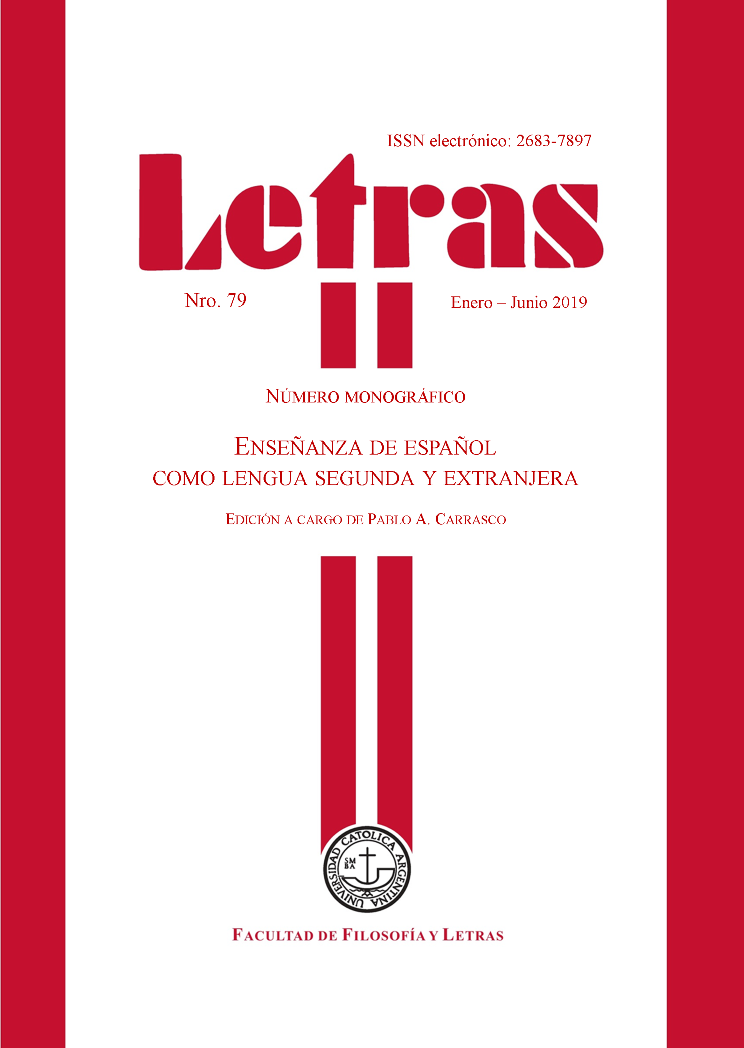Students’ perceptions of Integrated Performance Assessments: Towards an effective assessment model focused on communicative ability
Keywords:
assessment - communicative ability – anxiety - perceptionsAbstract
In the field of foreign and second language teaching, current trends in curriculum development highlight the importance of creating performance-based assessment instruments focused on the three modes of communication: interpretive (aural or reading comprehension without the possibility of negotiating meaning with the creator of the message), presentational (written or oral communication without the possibility of negotiating meaning with the reader/interlocutor) and interpersonal (oral or written two-way communication with the possibility of negotiating meaning with the reader/interlocutor) (The National Standards Collaborative Board 2015). As previous studies (Adair-Hauck, Glisan et al. 2006, Davin, Troyan et al. 2011, Adair-Hauck & Troyan 2013, Zapata 2016, Levi Altstaedter & Krosl 2018; among others) have shown, Integrated Performance Assessments, are a viable option for this kind of assessment approach. A crucial aspect of the teaching-learning process are students’ perceptions, as these can impact their performance on tasks and assessments. Although previous studies have focused on students’ perceptions of IPAs, (Zapata 2016, Levi Altstaedter & Krosl 2018), more research is needed on this topic. Therefore, this study investigates the relationship among variables such as perceptions of effectiveness of IPAs, assessment anxiety, perceptions of instrument design, and students’ satisfaction, while offering a theoretical model that presents a connection among those variables and offers a theoretical model that includes the conections among those variables.Downloads
References
AITCHISON, Jean (1993): El cambio en las lenguas. ¿Progreso o decadencia? (versión esp. a cargo de L. Castro Ramos y V. Forcadell Durán). Barcelona, Ariel.
CANO, Rafael (2005): El español a través de los tiempos. Madrid, Arco Libros.
CRYSTAL, David (1984): Who cares about English language? Harmondsworth, Middix, Penguin.
DEL VALLE, José y ARNOUX, Elvira (2010): “Las representaciones ideológicas del lenguaje. Discurso glotopolítico y panhispanismo”, en Spanish in context, 7(1), 1-24.
HYMES, Dell (1971) [2001, reimpr. Routledge]: Foundations in sociolinguistics: an ethnographic approach, Vol. 6. Londres, International Journal of Cross Cultural Management.
LAPESA, Rafael (1997): Historia de la lengua española. Madrid, Gredos.
MARCOS MARÍN, Francisco (2011): “De imperio a emporio. La unidad de la lengua española”, en Nueva revista de política, cultura y arte, 135, pp. 65-76.
LLOYD, Paul (1993) (versión esp. de , Adelino Álvarez Rodríguez): Del latín al español. Madrid, Gredos.
PENNY, Ralph (1993): Gramática histórica del español. Barcelona, Ariel.
PRUNES, María Natalia (2018): “Panhispanismo”, en CASSIN, B. (dir. del original francés), LABASTIDA, J. (dir. de la traducción al español) y PRUNES, M. N. (coord.): Vocabulario de las Filosofías Occidentales. Diccionario de los intraducibles, México, Siglo XXI.
RAMÍREZ LUENGO, José Luis (2016): “Lusismos, falsos lusismos, casi lusismos. El aporte portugués en la historia del léxico español (americano)”, en Etimología e historia en el léxico del español: estudios ofrecidos a José Antonio Pascual (Magister bonus et sapiens) (coord. Mariano Quirós García, José Ramón Carriazo Ruiz, Emma Falque Rey y Marta Sánchez Orense), pp. 899-918
SARMIENTO, Ramón (1992): “La teoría de la corrupción en Antonio de Nebrija (1492)”, en Bulletin Hispanique, 94-2, pp.405-409.
TAGLIAVINI, Carlo (1993): Orígenes de las lenguas neolatinas. Madrid, Fondo de Cultura Económica.
TORRENS ÁLVAREZ, María Jesús (2007): Evolución e historia de la lengua española. Madrid, Arcos.
THOMASON, Sarah Grey y KAUFMANN, Terrence (1988): Language Contact, Creolization, and Genetic Linguistics. University of California Press.
ZULLO, Julia y RAITER, Alejandro (2008): Lingüística y política. Buenos Aires, Biblos.
Downloads
Published
How to Cite
Issue
Section
License












